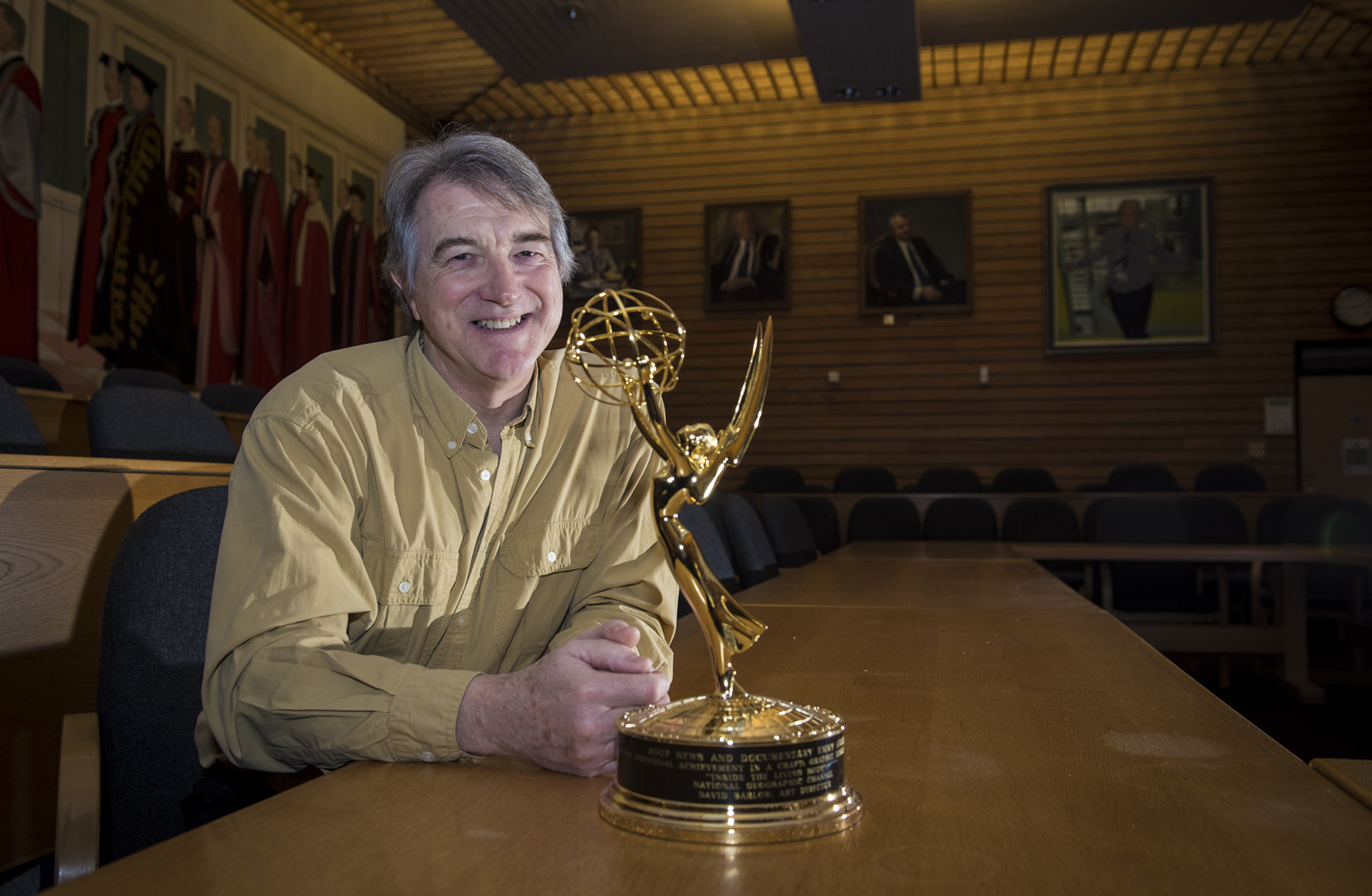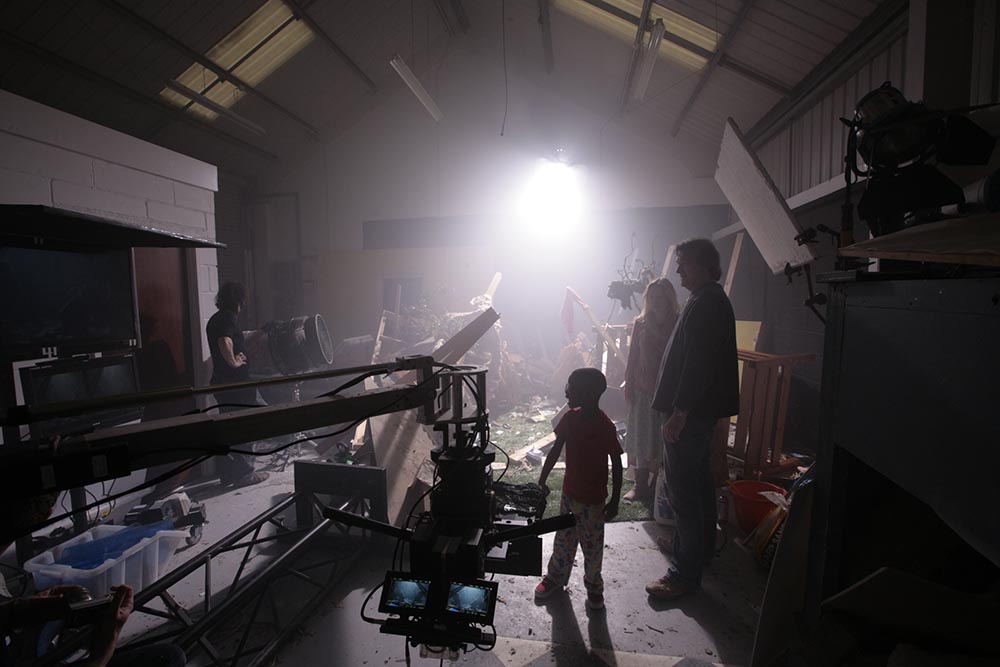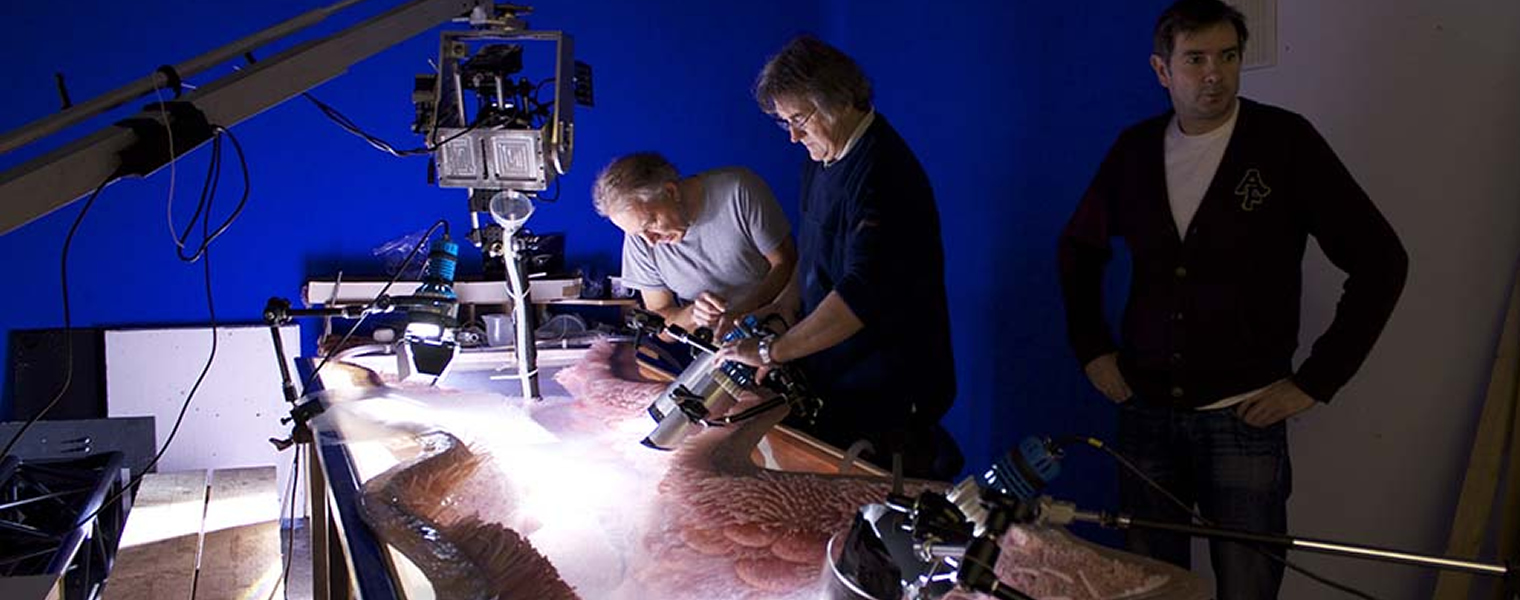Hartley News Online Your alumni and supporter magazine
David Barlow, Honorary Research Fellow in Neurophysiology, began his fascinating career in 1971, when he started as a Zoology undergraduate at Southampton. In 1975 he was offered a PhD, studying under the renowned Professor Michael Sleigh, and later worked at the School as a research assistant. Since then David has worked on countless international television series’ as a cinematographer and high-speed photographer; these include the BBC, National Geographic and Channel 4 in programmes such as Inside the Living Body, and In the Womb. He has been nominated for a BAFTA and won a highly acclaimed Emmy award in 2007.
How did you find yourself in such an exciting, diverse field as cinematography?
My experience in cinematography is actually entirely self-taught. I was an undergraduate here at Southampton. I then continued to postgraduate study with Michael Sleigh who was very supportive of my interest in photography and filming. As such, a large proportion of my PhD involved high-speed photography through microscopes. The first thing I did in this field was to work on the first BBC epic, Life on Earth, which was made in the 1970s while I was still at University. They were looking for high-speed, close up images of cilia (tiny hair-like structures), which I was filming as part of my Phd. I began to do small bits and pieces in the field from that moment on.
Had this been a career you had considered before you started to get involved with the BBC?
It had been my ambition to work in television or film in some way since I was a teenager, and I was always interested in photography. However, things like film schools didn’t really exist in this country at that time (1960’s); there was the London Film School, but it was more the sort of thing you did if you wanted to become a director. Ironically, I did end up lecturing on my work to students at the National Film and Television School in the late 80s, but when I was at school and thinking about what to do next, it wasn’t such a common thing in the UK.
Do you feel the skill is down to the combination of your scientific knowledge, alongside your expertise in photography?
Yes. The photography side of things is self- taught, but I am able to do what I do because of my detailed science background. It’s not just about knowing the science, but also about asking the right questions. An example of this is when I was asked to do a special effect of asteroids hitting the Earth for the Channel 4 programme The Day the Earth was Born. I spoke to various experts at the time, who explained that something of that scale was more like a splash than an explosion. By asking the right questions I was able to figure out how to create this by dropping weights into a fine powder, then filming it at high speed. I then used computers to place these “splashes” into natural backgrounds that I had filmed in Iceland.
Tell us about the way you have worked on visually representing cell processes, for which you used your unique crossover of skills in microscopy and cinematography.
I’m currently working on imagery of cells killing cancer cells in collaboration with researchers at Oxford University. I’ve seen other cell footage shot and one of the reasons I’m interested in it is because these shots are rare. I don’t get commissioned so much for things like visual representations of trips through the heart or through blood vessels any more. It’s all available for use from my archive and it’s cheaper for them to use my old footage than for them to commission me to update it. I think it would be great to revisit some of this given what we have available now.This may be a personal project for me.
What about the endoscopic imagery you create?
This tends to be more of the ‘in the womb’ special effect creations. Undertaking real-life medical endoscopies, which I did a lot of in the 80s and 90s, has become much more difficult to do not only from a practical and political point of view but also because of the ethics around it.
National Geographic commissioned me for the In the Womb programme, and dictated that this be computer generated. It was the production company Pioneer Productions and I who came up with the idea to use physical models for most of it, and then use computers to fill in other details.
You were awarded an Emmy. What was this in recognition of?
It was something of a surprise! It was for a film by National Geographic, called Inside the Living Body. I have been nominated for awards before, such as BAFTAs, gone along to the ceremonies and not won. So, when it came to this one in the US when even National Geographic didn’t seem to think it would win, I decided not to go. It was a long way, and it wasn’t the same as it used to be. In the old days at awards ceremonies you would have a ceremony dinner, with cabaret acts. Even if you didn’t win, it was a great night out; you could really dress up, and the tickets were free for nominees. Now, everything has to be paid for and you don’t even get the meal! However, my colleague did go and called me in the morning to tell me the good news. He even made sure my trophy was shipped over to me!
Would you say winning the Emmy has been the highlight of your career so far?
Of course any award is a highlight, but the one I have been happiest to win is the Lennart Nilsson award. It’s less well-known, but it carries more prestige within the industry in Europe and also among academics. You also get to go to Stockholm, to the place where they give out the Nobel Prize. What’s more, you actually get some money!
You are still very heavily involved with the University; why has that been so important for you?
For me, having completed my undergraduate degree, PhD, and met my wife here, we have always wanted to stay in Southampton. One of the reasons I have stayed is because of the support I have had from University professors for the fact that I was trying to do something a bit different.
When I became more commercially set-up, there was, from a TV point of view, a need to be closer to London, but in terms of having access to expertise, and collaborations, sticking close to the University was important. I went on to rent my own lab at Southampton for 15 years, until the Boldrewood campus closed. I do miss that now, I think that phase has moved on somewhat, but I do still work with people in Biological Sciences
What is the main focus of your work at the moment?
I’m now devoting most of my time to creating my archive. It has only been online for about a year. The motive is to spread the word more globally, as there are an awful lot of people and production companies who may use my shots and sequences.
What was the best thing for you about studying at Southampton?
I came to Southampton as an undergraduate with no plans in mind. Just like everybody else, I enjoyed my course and the University life. I think people need to realise that simply doing a degree will not necessarily set them up for life, as it doesn’t always work like that. People are often more interested in what else you do and what else you have about you. I was part of the student society Wessex Films, and we were making black and white movies and processing them ourselves. When my PhD started, I was very interested in TV, which is why my supervisor knew that this was the right path for me when the BBC came along looking for someone with my combination of interests and skills.
What advice would you give to Southampton students today?
If what you want is overnight fame in this industry, then don’t do what I do! But I have really enjoyed it, and you have a lot more freedom than in other paid jobs. It’s so important for students to combine their degrees with their interests, think about the skills their degree has taught them, and how they can apply them. Postgraduates may feel that they have to stay in academia after a PhD, but for me, my most important skills have been those that I have acquired, not ones that I have studied. However, I couldn’t have carried out this work without my academic background. The other route I could have taken would have been to go and work in a TV studio as a tea boy at 16. The A Levels and University route felt safer to me (and my mother!), and seems to have worked out fine.
You can view David’s archive footage at: www.davidbarlowarchive.com, or on YouTube at: www.youtube.com/user/davidbarlowarchive
You can also view the opening sequence of Atlantis, which David worked on in conjunction with Pioneer Productions, in the video below.



